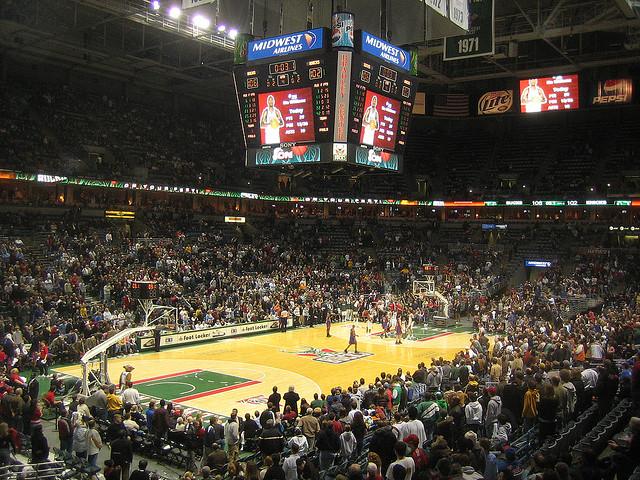Recently, a poll came out showing Milwaukee area residents, as well as the rest of the state, overwhelmingly disapprove of a plan to borrow $150 million for a new Milwaukee Bucks arena. In the Milwaukee area, 29 percent support the plan and across the rest of the state, support sits at 9 percent.
Now grumpy people not wanting to pay for shit through borrowing usually isn’t something I’d bat an eye at. It’s kind of one of those givens in life, like the uncertainty that comes with opening up a box of chocolates. But this instance of outright refusal to invest in the city long-term really irked me more than others.
I don’t know if it’s how close the Bucks are to moving to another city if funding doesn’t go toward this arena by 2017, or the fact this arena could bring a plethora of long-term jobs to this area. Either way, it’s really disheartening to see the lack of care people take for a city they live and work in. It’s also as if no one is thinking about potential damage losing the Bucks could do to the downtown area.
This reveals a pretty disturbing trend when it comes to what we as a community choose to fund. We base our funding choices on the things most important to us as individuals, not society. Now you may be reading that and think I’m cuckoo for saying it, but this trend ensures seemingly important things go unfunded.
Quite frankly, we need to get over ourselves and stop thinking about just ourselves when voicing opinions on these key funding issues. This trend acts as a cocoon that shields us from the reality of other people, and in the end it hurts all of us. People hardly consider the consequences their choices have on others. Just consider the consequences of not going through with the Republican-backed funding plan.
Yes, to some it may save money in the short-term and ensure they don’t “waste” money on things that are unimportant to them. But the disintegration of this plan is not a waste to someone who could use a job the arena will provide. The arena will also bring jobs in the forms of, “A new mix of entertainment, retail, hotel, residential, office and parking space…” Any venture that could increase jobs, reduce hopelessness and foster a closer sense of community throughout the city should not be looked at as a waste or a hassle.
As vested actors, people tend to support things that impact them or that they can identify with. This is probably the biggest barrier to getting funding trends to shift. People should realize though how damaging it is to take a pessimistic viewpoint toward investment in the future. Moving forward we need to start to examine the wide-ranging societal impacts of collective legislative funding decisions instead of using short-sighted sets of values.
Miles Brown (mjbrown22@wisc.edu) is a senior majoring political science and history with a certificate in Russian, East European and Central Asian Studies.














